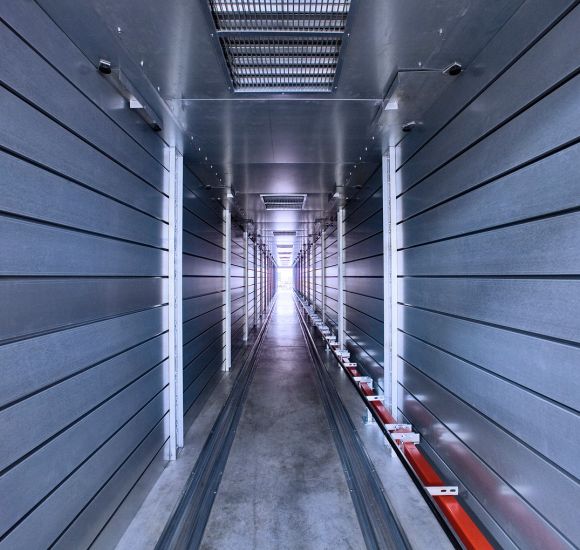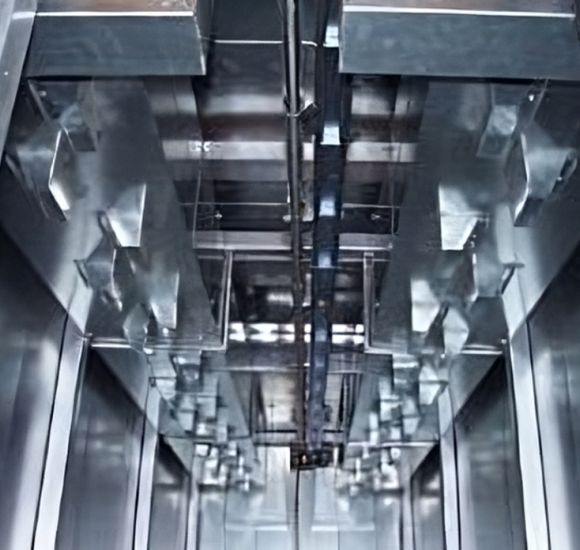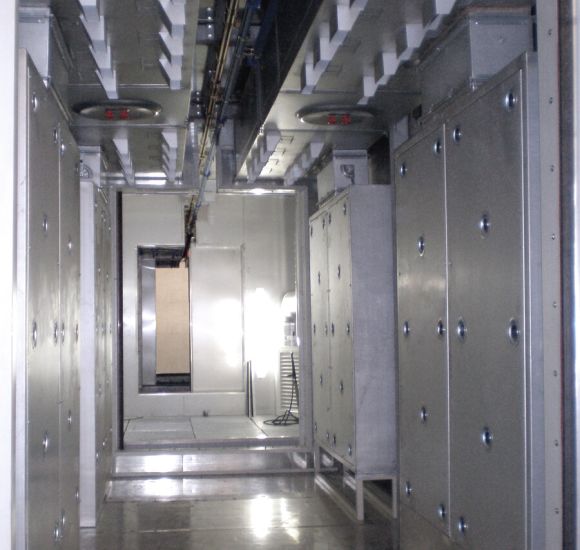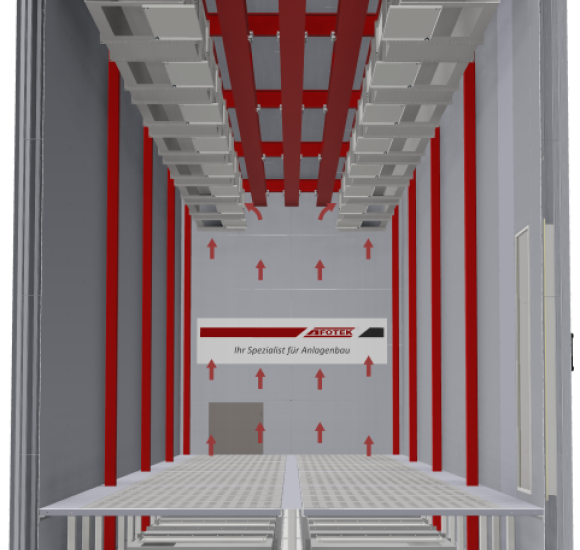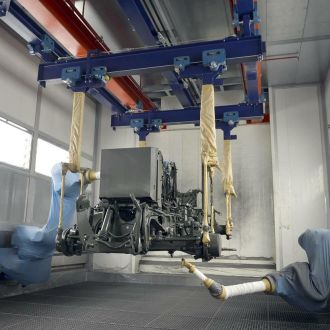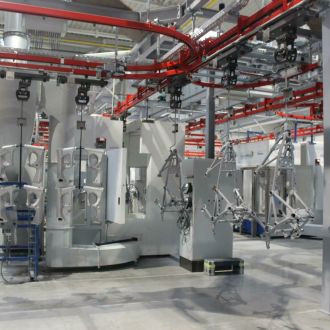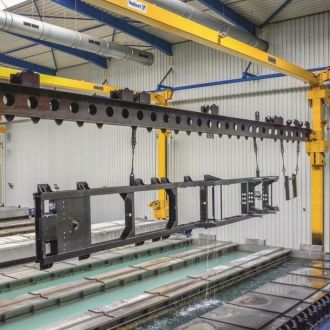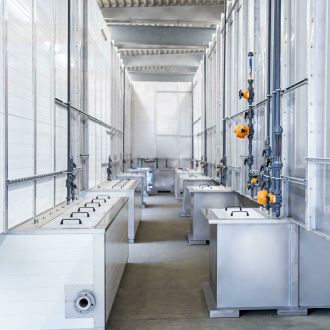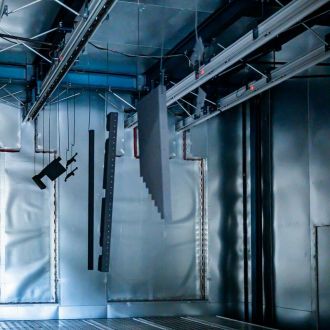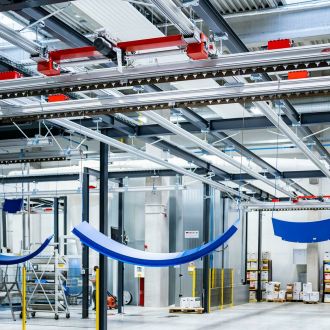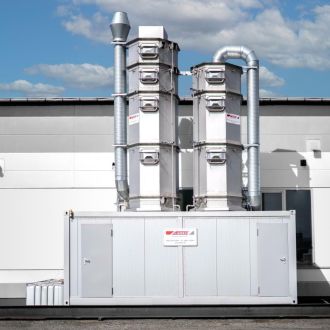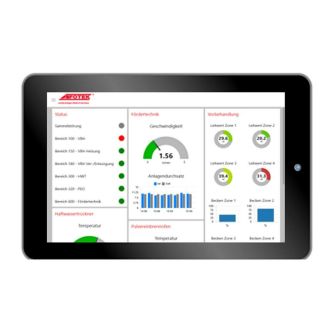
THE PROFESSIONAL FOR
DRYING SYSTEMS
Drying Systems
Proper and professional drying is the final process step in surface coating and is fundamentally important for the quality of the coating. Whether steel, aluminium or plastic – AFOTEK relies on highly effective processes for drying the workpieces and offers individual solutions depending on the coating process (powder coating or wet paint coating) and the process step. These include powder baking ovens, adhesive water dryers, paint dryers, refrigeration dryers, infrared dryers, chamber dryers and core dryers.
Drying systems can generally be delivered individually or integrated as a downstream drying process within the painting system or powder coating system.
Many components of our drying systems are manufactured and pre-assembled at AFOTEK, so that the powder baking ovens, paint dryers and adhesive water dryers as well as the associated units are delivered in modules of the largest possible size This significantly reduces on-site assembly time.
When designing the system, AFOTEK relies on energy-efficient system control and heat recovery systems using heat pumps. The software development and visualisation is carried out by in-house PLC programmers. If desired, it is possible to connect an ERP or MES system that transfers the production data directly to the pretreatment line of the painting system, as well as the integration of product tracking or data tracking including history.
Advantages of drying systems
-
Use of waste heat possible through intelligent and energy-efficient system control.
-
Optimised use of energy through heat recovery measures.
-
Energy savings through high-quality insulation of the dryer panels.
-
The majority of the components are manufactured in our factory in Bad Hersfeld (units, dryer plates, etc.)
-
Delivery of prefabricated modules significantly shortens assembly times.
Once the powder has been applied during the powder coating process, the workpieces are placed in the powder baking oven. Baking temperatures vary between 180 °C and 240 °C depending on the type of powder. Whenever possible, the dryers are pre-assembled so that the finished elements or components arrive at the customer fully assembled.
After leaving the pretreatment system, the surfaces of the workpieces must be dried and freed from adhering water particles. This is done in so-called adhesive water dryers. The special design of the adhesive water dryer, together with the temperature-controlled circulating air, ensures a surface that is perfectly prepared for subsequent painting.
Depending on which paint system was previously used, the paint is dried at different temperatures and residence times. AFOTEK uses recirculation processes and high-quality dryer insulation to keep energy costs as low as possible. In addition, our focus is on reducing the size of the furnace inlet and outlet openings to minimise energy loss.
For smaller quantities or when using trolleys, chamber dryers or trolley dryers are used. In this case, the dryer usually consists of a chamber with a loading and unloading door. The workpieces or tray trolleys are placed in the dryer and remain there for a previously defined period. After drying is complete, the drying chamber is emptied and is available for restocking.
Infrared and UV dryers represent an alternative to conventional drying processes, such as circulating air drying. In this case, drying takes place using infrared or UV radiation. However, this requires use of the appropriate painting systems, since, for example, special UV-curing varnishes must be used for UV drying.
Refrigeration drying uses temperatures between 30 °C and 60 °C. This low-temperature process uses the energy potential of moist air, which is circulated in a closed circuit. In order to achieve the desired extremely dry climate, moist air in the bypass is continuously dehumidified. Refrigeration drying can be used in both continuous and chamber dryers.
SPECIALISATIONS
AT A GLANCE
Automation and digital solutions
Ultra-modern and intelligent system solutions ensure that painting system operators can work profitably. In addition to transparent processes and digital documentation, robotic painting systems and handling robots ensure cutting-edge system technology in accordance with the Industry 4.0 standard. Interfaces to upstream and downstream ERP and/or MES systems round off the innovative control concept.



